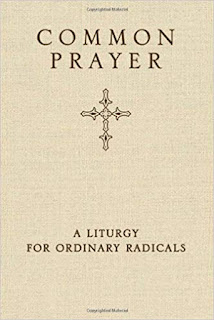The Daily Lectionary
FRIDAY, August 7, 2020
Psalm 105:1-6, 16-22, 45b; Genesis 36:1-8; Acts 18:24-28
(Revised Common Lectionary Year A)
(Semicontinuous Reading Plan)
Remembering Joseph
1 Give praise to the Lord, proclaim his name;
make known among the nations what he has done.
2 Sing to him, sing praise to him;
tell of all his wonderful acts.
3 Glory in his holy name;
let the hearts of those who seek the Lord rejoice.
4 Look to the Lord and his strength;
seek his face always.
5 Remember the wonders he has done,
his miracles, and the judgments he pronounced,
6 you his servants, the descendants of Abraham,
his chosen ones, the children of Jacob.
16 He called down famine on the land
and destroyed all their supplies of food;
17 and he sent a man before them—
Joseph, sold as a slave.
18 They bruised his feet with shackles,
his neck was put in irons,
19 till what he foretold came to pass,
till the word of the Lord proved him true.
20 The king sent and released him,
the ruler of peoples set him free.
21 He made him master of his household,
ruler over all he possessed,
22 to instruct his princes as he pleased
and teach his elders wisdom.
45b Praise the Lord.
Esau’s household moves
36:1 This is the account of the family line of Esau (that is, Edom).
2 Esau took his wives from the women of Canaan: Adah daughter of Elon the Hittite, and Oholibamah daughter of Anah and granddaughter of Zibeon the Hivite— 3 also Basemath daughter of Ishmael and sister of Nebaioth.
4 Adah bore Eliphaz to Esau, Basemath bore Reuel, 5 and Oholibamah bore Jeush, Jalam and Korah. These were the sons of Esau, who were born to him in Canaan.
6 Esau took his wives and sons and daughters and all the members of his household, as well as his livestock and all his other animals and all the goods he had acquired in Canaan, and moved to a land some distance from his brother Jacob. 7 Their possessions were too great for them to remain together; the land where they were staying could not support them both because of their livestock. 8 So Esau (that is, Edom) settled in the hill country of Seir.
A new disciple preaches
18:24 Meanwhile a Jew named Apollos, a native of Alexandria, came to Ephesus. He was a learned man, with a thorough knowledge of the Scriptures. 25 He had been instructed in the way of the Lord, and he spoke with great fervor and taught about Jesus accurately, though he knew only the baptism of John. 26 He began to speak boldly in the synagogue. When Priscilla and Aquila heard him, they invited him to their home and explained to him the way of God more adequately.
27 When Apollos wanted to go to Achaia, the brothers and sisters encouraged him and wrote to the disciples there to welcome him. When he arrived, he was a great help to those who by grace had believed. 28 For he vigorously refuted his Jewish opponents in public debate, proving from the Scriptures that Jesus was the Messiah.
Optional parts of the readings are set off in [square brackets.]
The Bible texts of the Old Testament, Epistle, and Gospel lessons are from The Holy Bible, New International Version®, NIV® Copyright ©1973, 1978, 1984, 2011 by Biblica, Inc.® Used by permission. All rights reserved worldwide.
The Daily Lectionary is a three-year cyclical lectionary. We are currently in Year A. Beginning with the first Sunday of Advent in 2020, we will be in Year B. The year which ended at Advent 2019 was Year C. These readings complement the Sunday and festival readings: Thursday through Saturday readings help prepare the reader for the Sunday ahead; Monday through Wednesday readings help the reader reflect and digest what they heard in worship. Revised Common Lectionary Daily Readings, copyright © 2005 Consultation on Common Texts. www.commontexts.org
The Daily Lectionary for FRIDAY, August 7, 2020
Psalm 105:1-6, 16-22, 45b; Genesis 36:1-8; Acts 18:24-28









